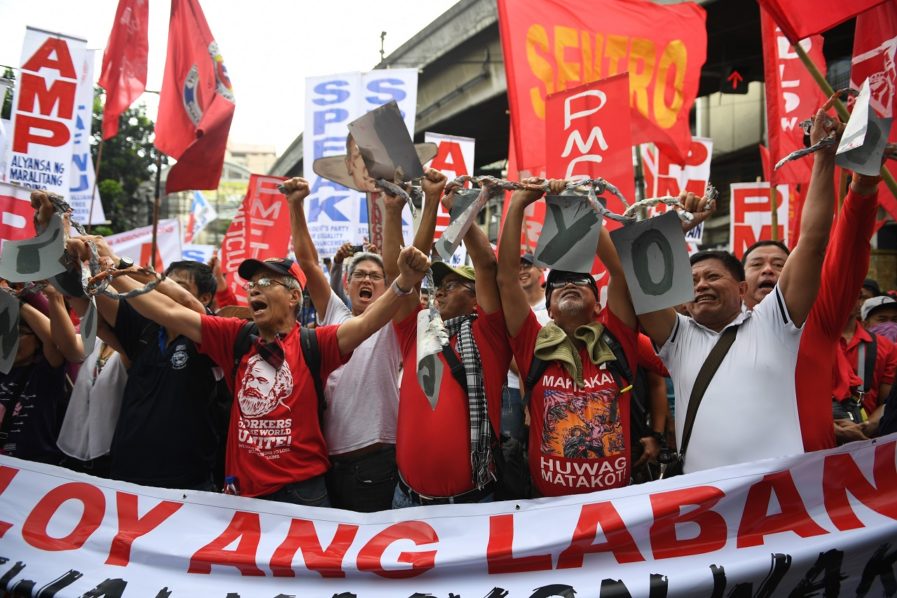
Waving red flags, unions zeroed in on what they say is a broken campaign promise from Duterte to get rid of short-term employment contracts, which deprive workers of better benefits and pay.
“We were taken for a ride,” the Workers Party said in a Labour Day statement as it vowed to continue fighting against the practice.
A giant demon in the role of Duterte was hauled by the protesters to the street fronting the presidential palace and torched.
Police said some 5,500 people attended the marches and that the events were “generally peaceful”.
The protests came despite Duterte announcing, in a Labour Day ceremony in the central Philippines, that he had signed an order strengthening regulations against short-term contracts.
Duterte insisted he could not do more as this would require the legislature to revise labour laws.
“I remain firm in my commitment to put an end to… illegal” contracts, the president said.
Duterte’s newly signed order still allows companies to hire third-party agencies to provide contractual labour for limited periods, charged Dennis Sequena, a Workers Party official.
“He (Duterte) is favouring business. His order does not favour the workers. It allows contracting agencies (to fill) jobs that should be regularised,” he told AFP.
Labour groups in the Philippines accuse many companies of saving money by using short-term contractual workers to avoid paying higher wages and providing the legally required benefits due to regular workers.
[ad unit=2]



